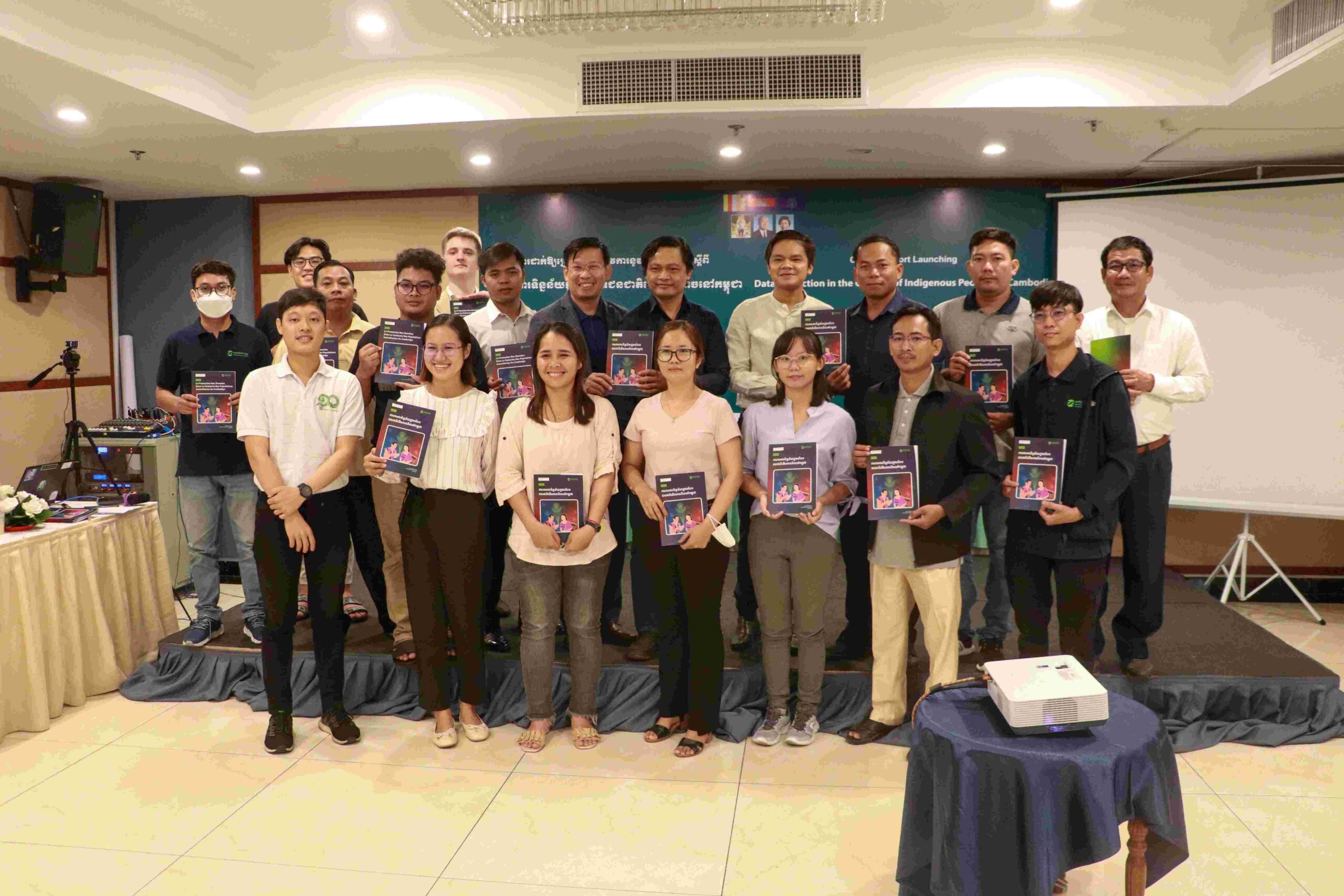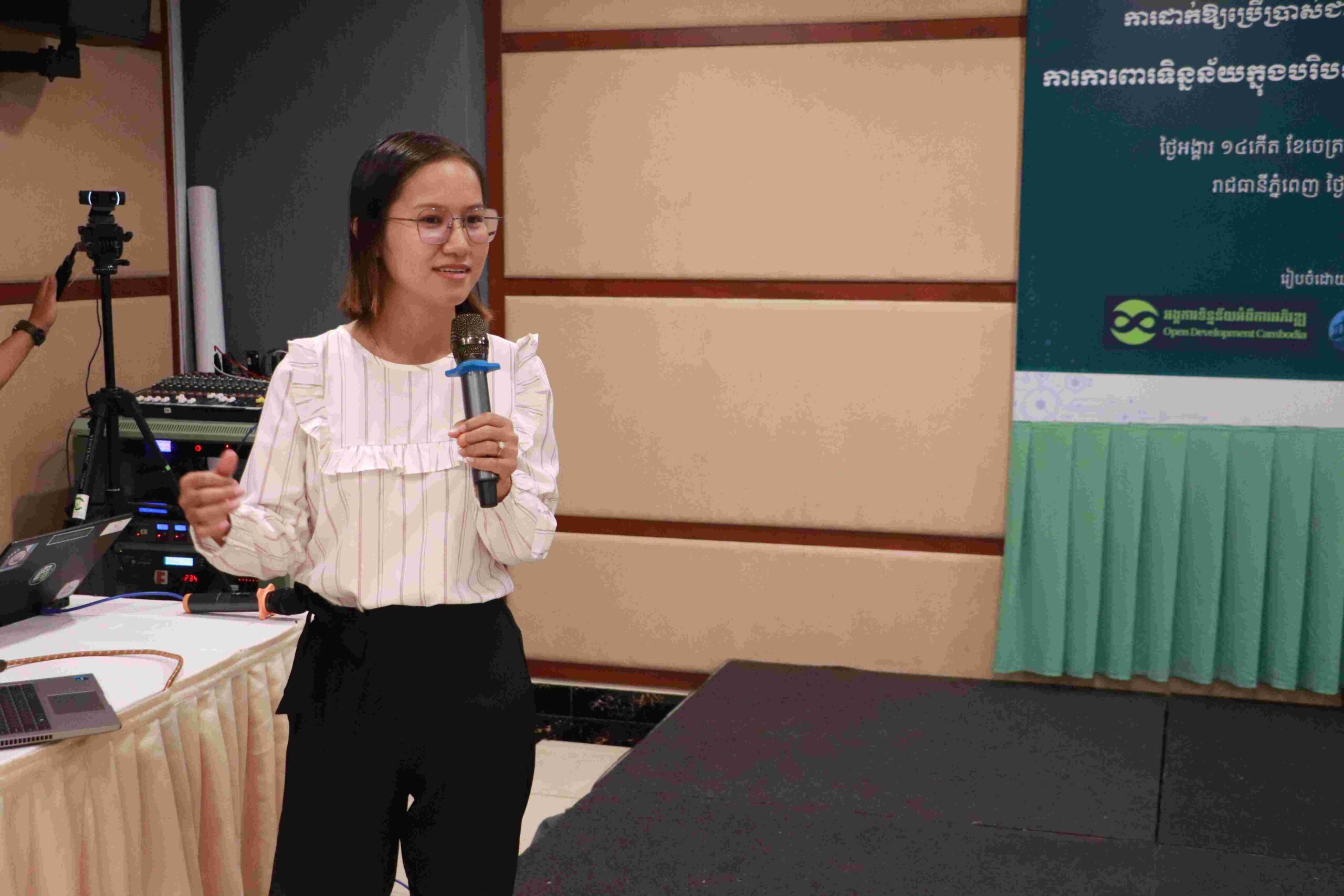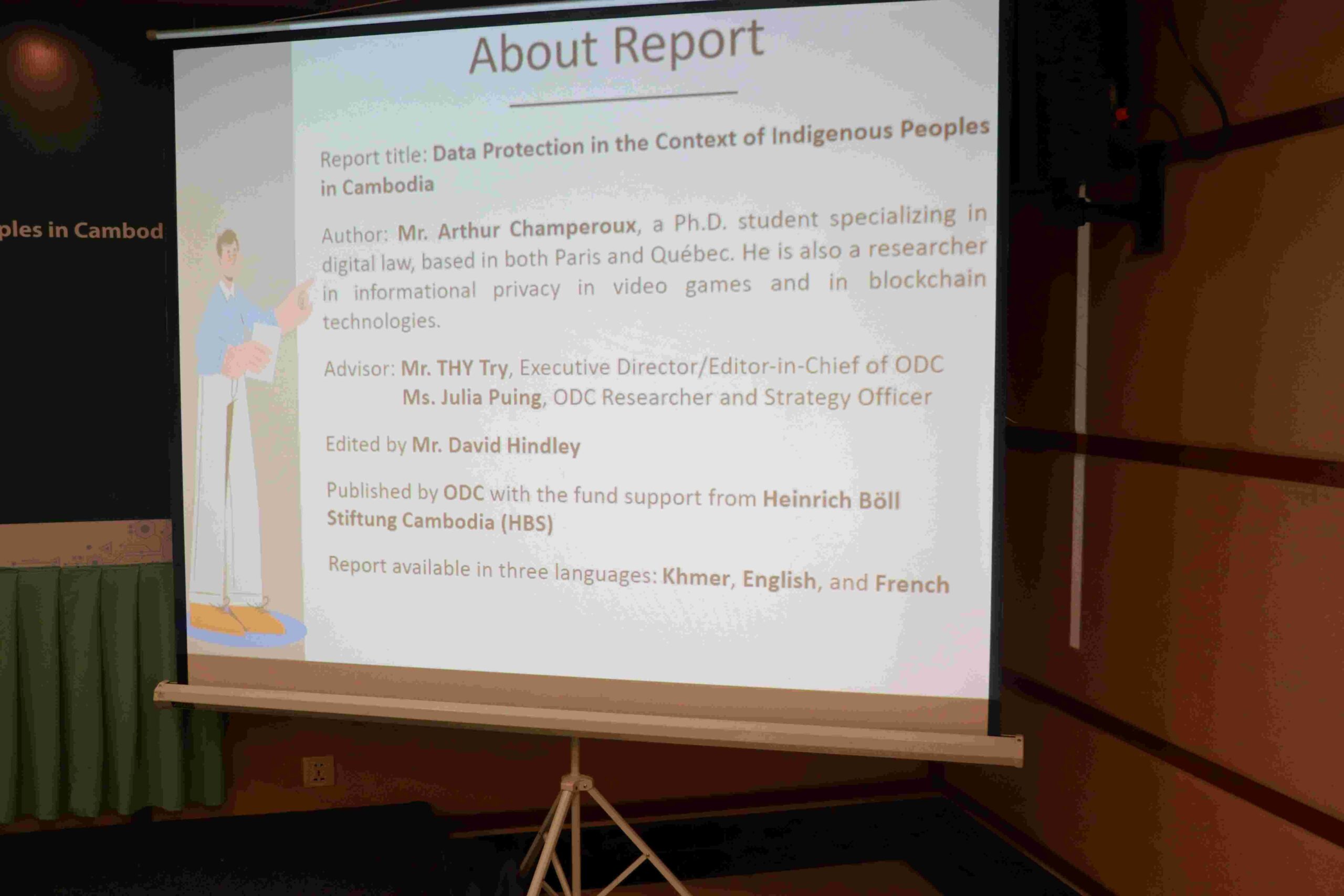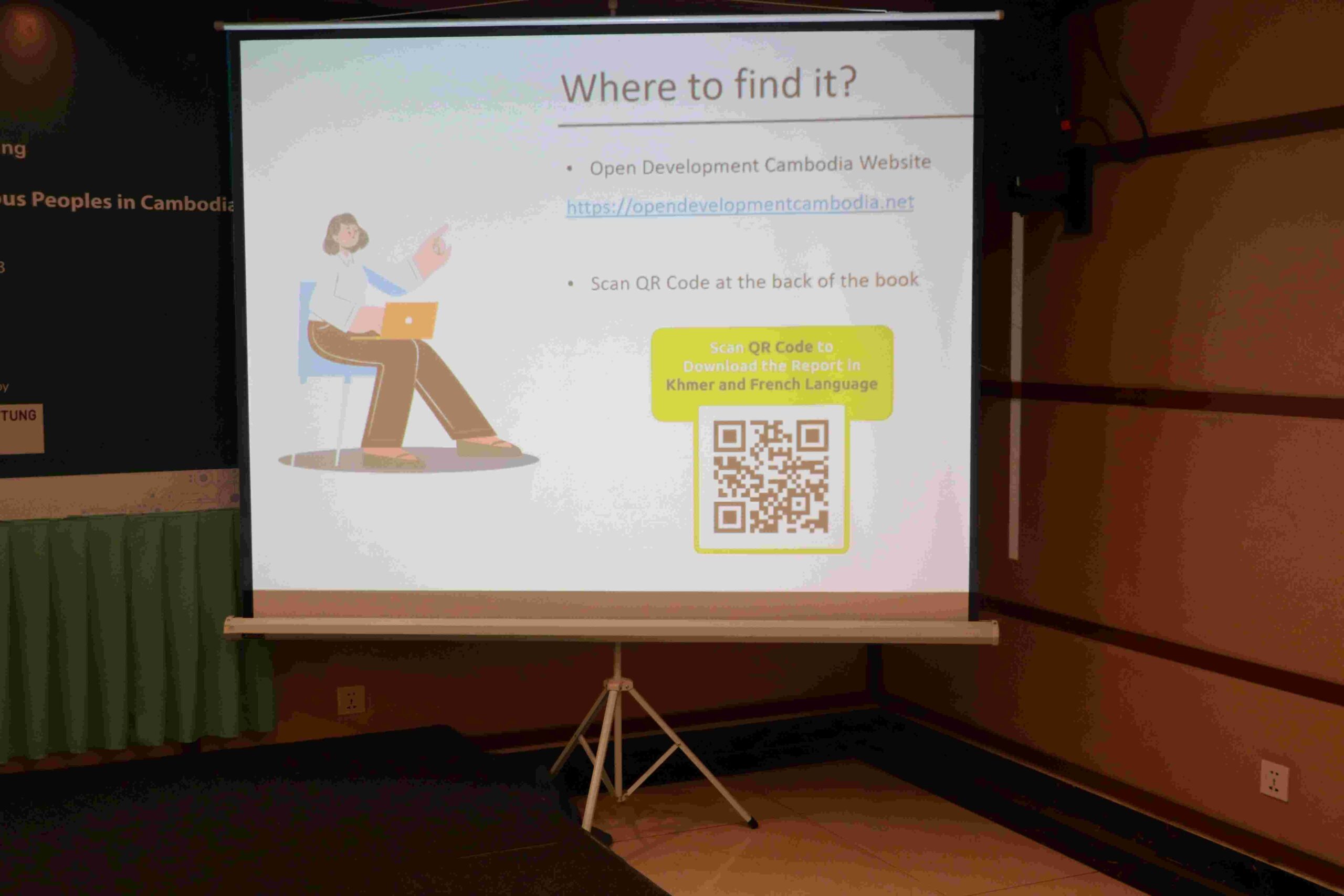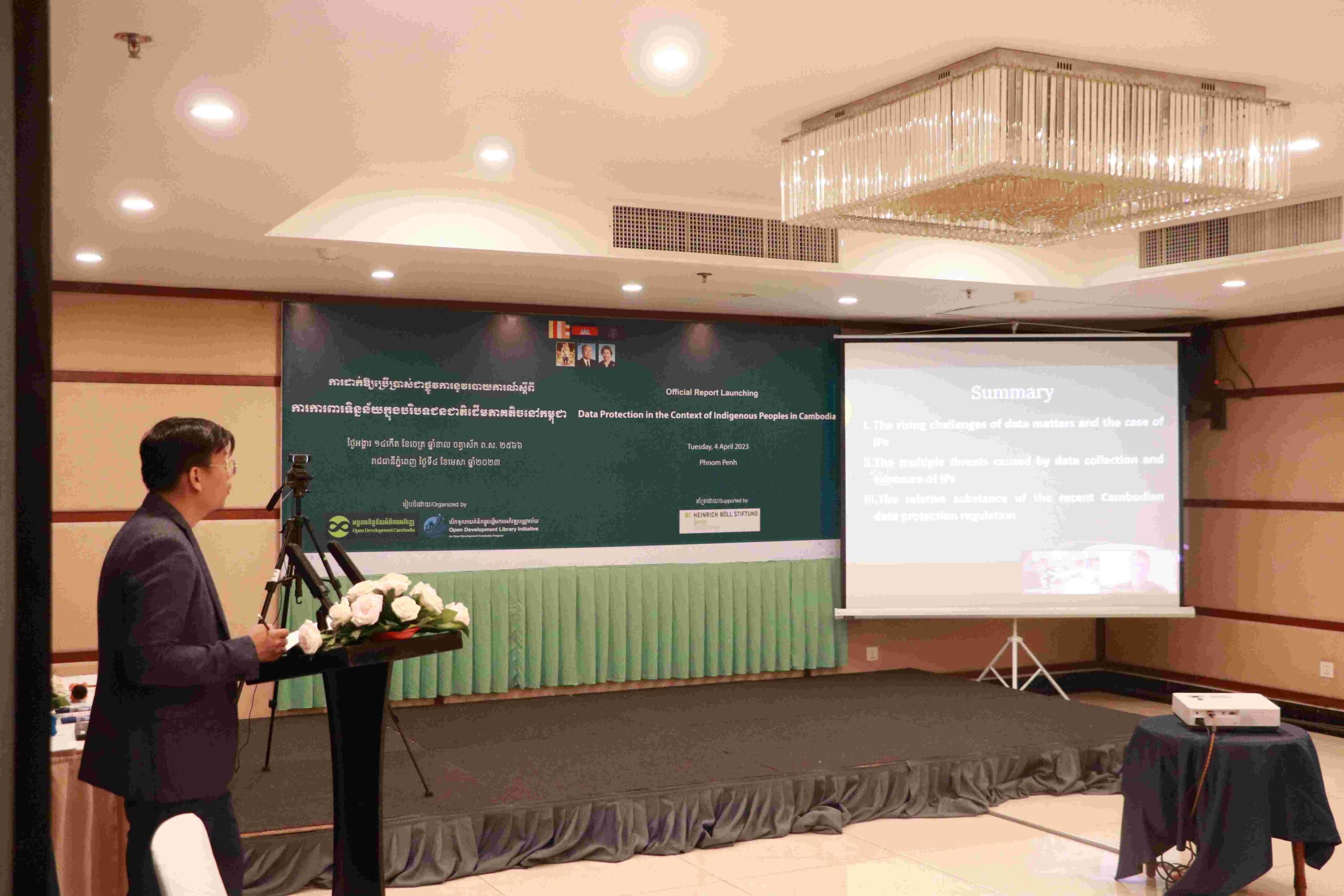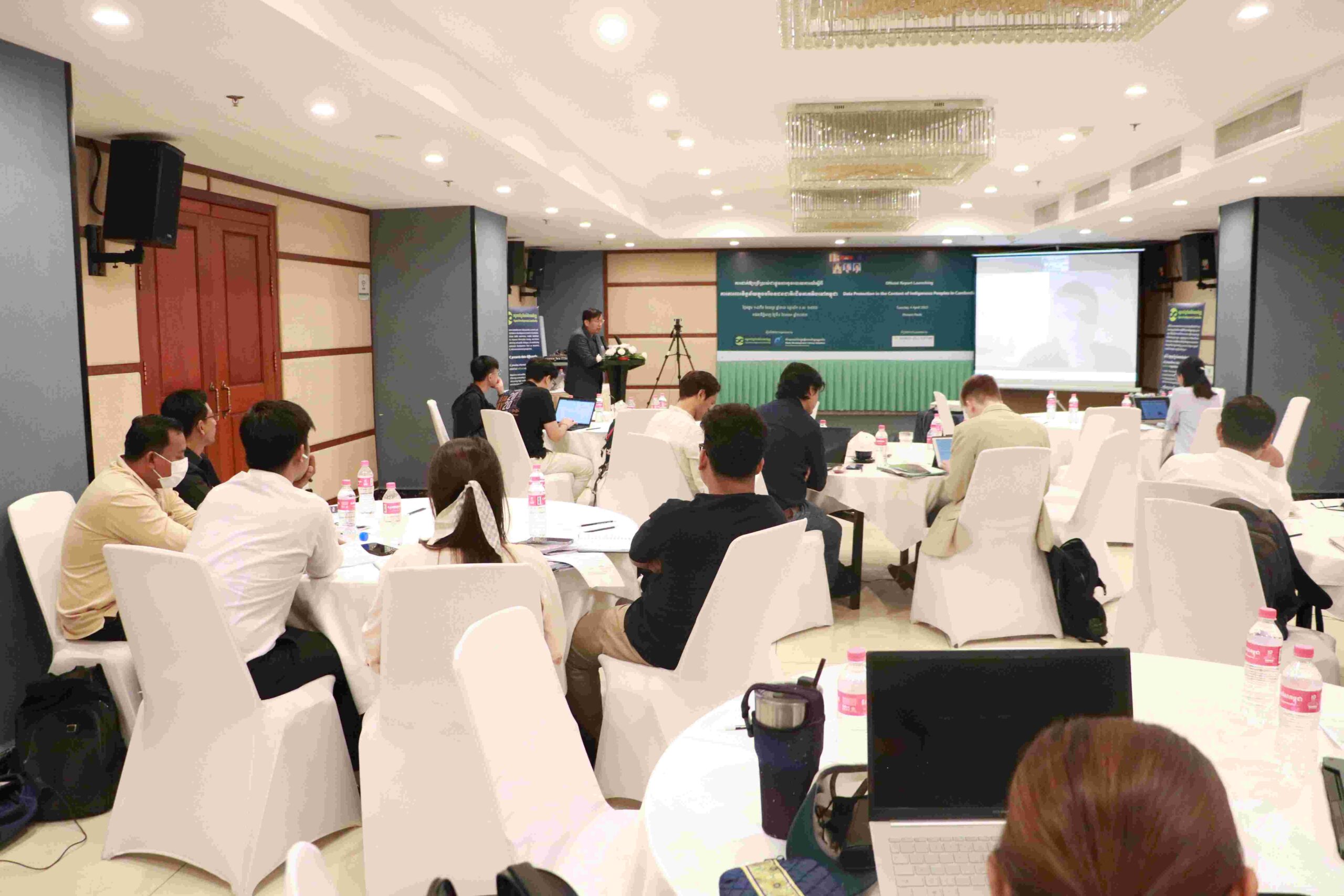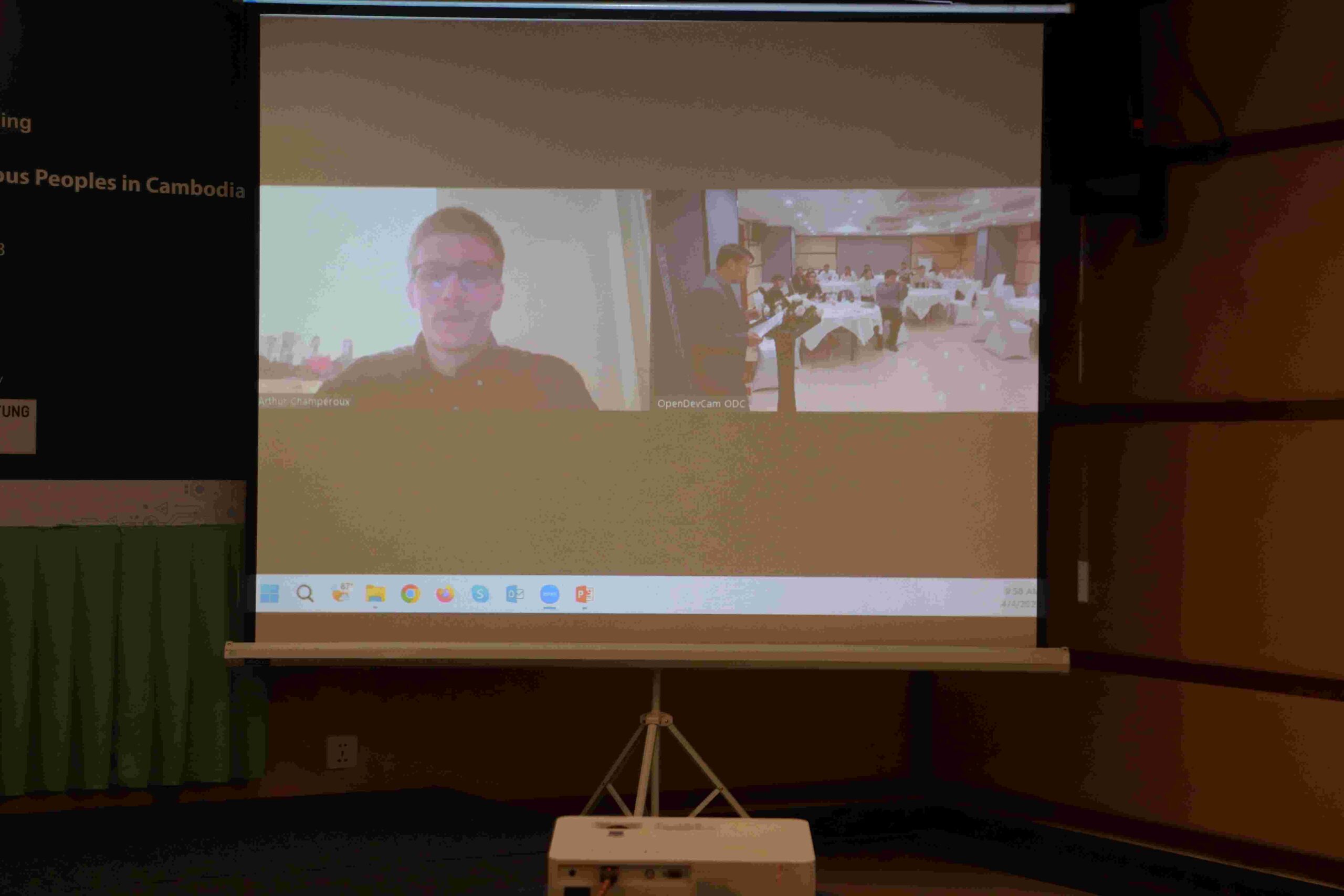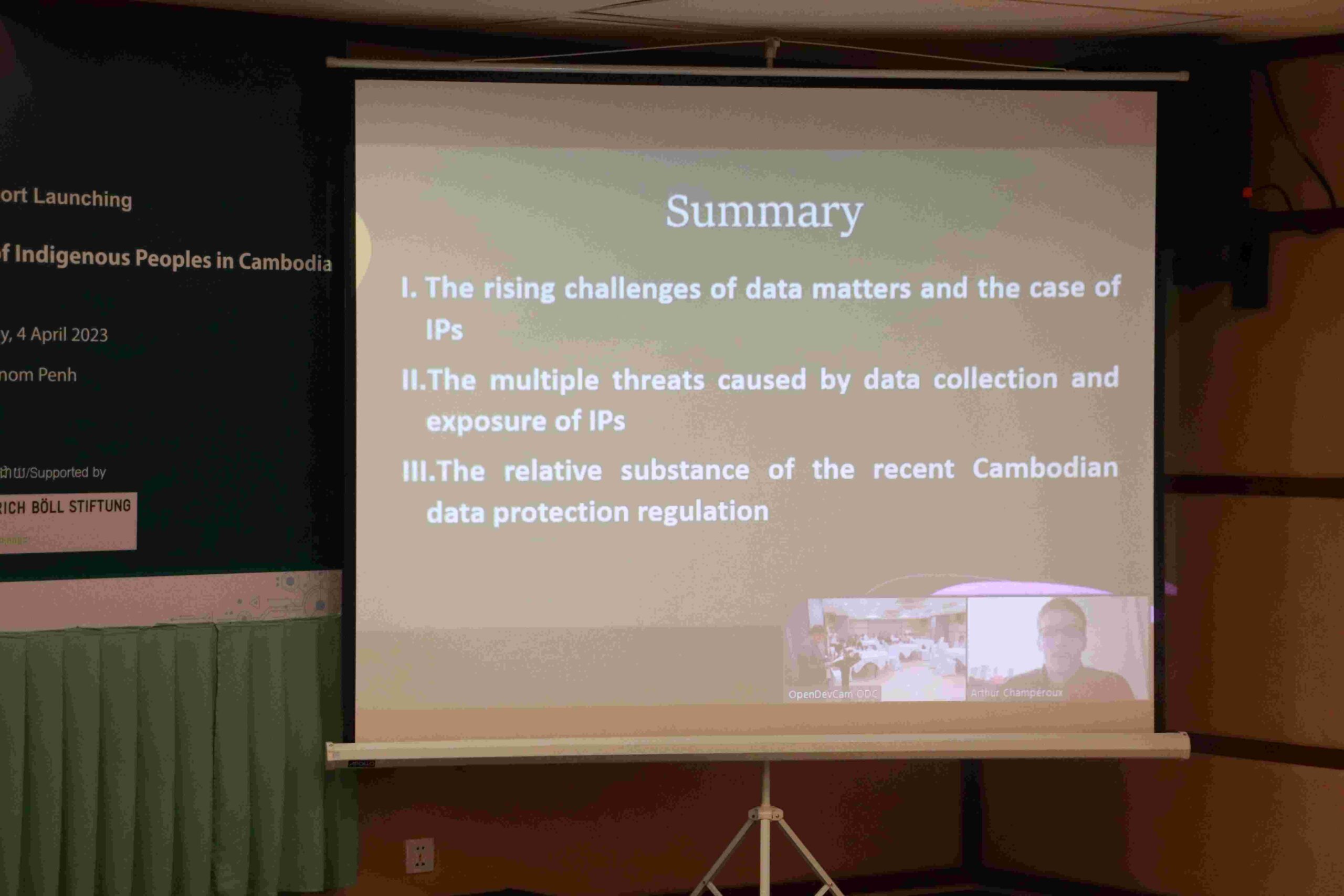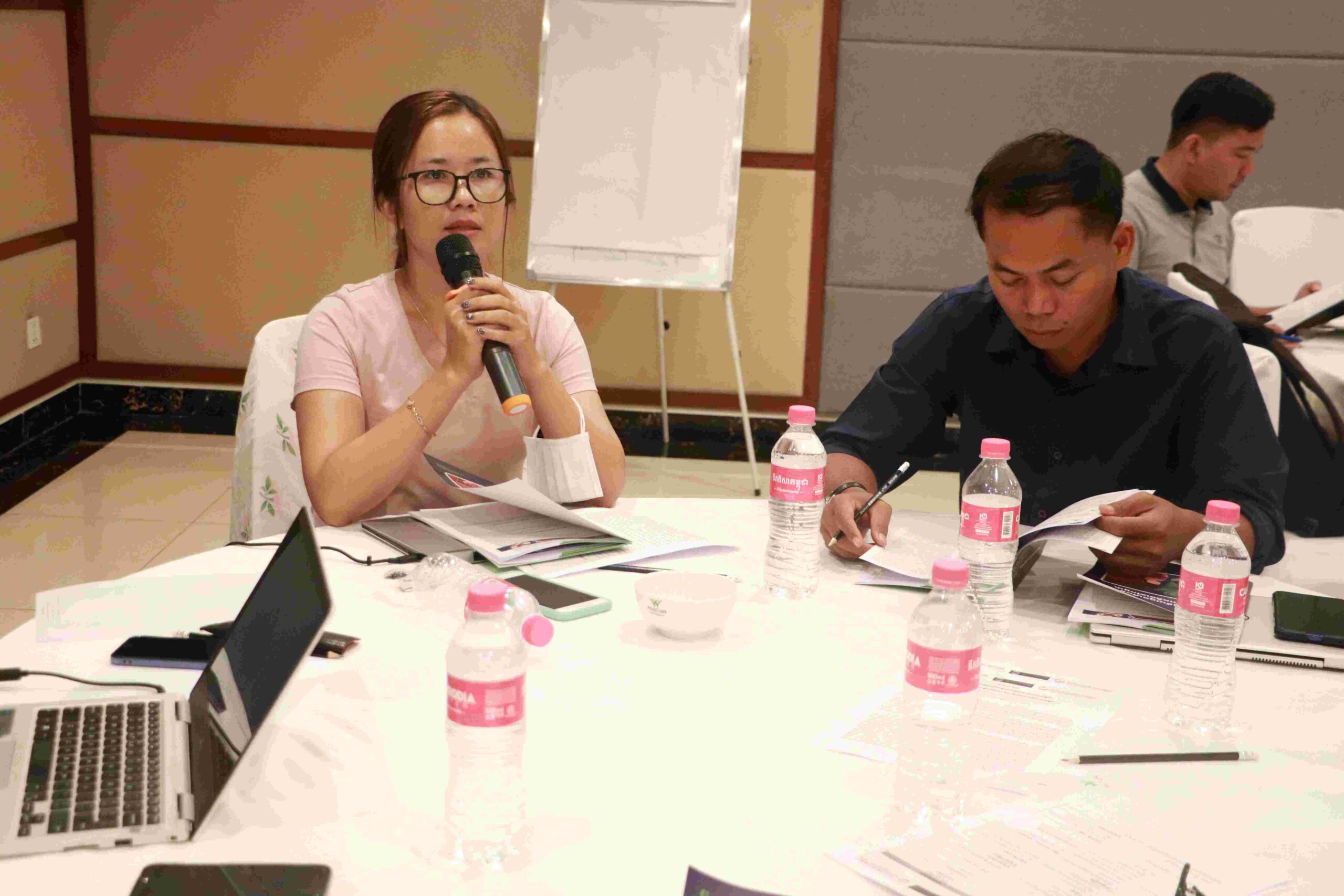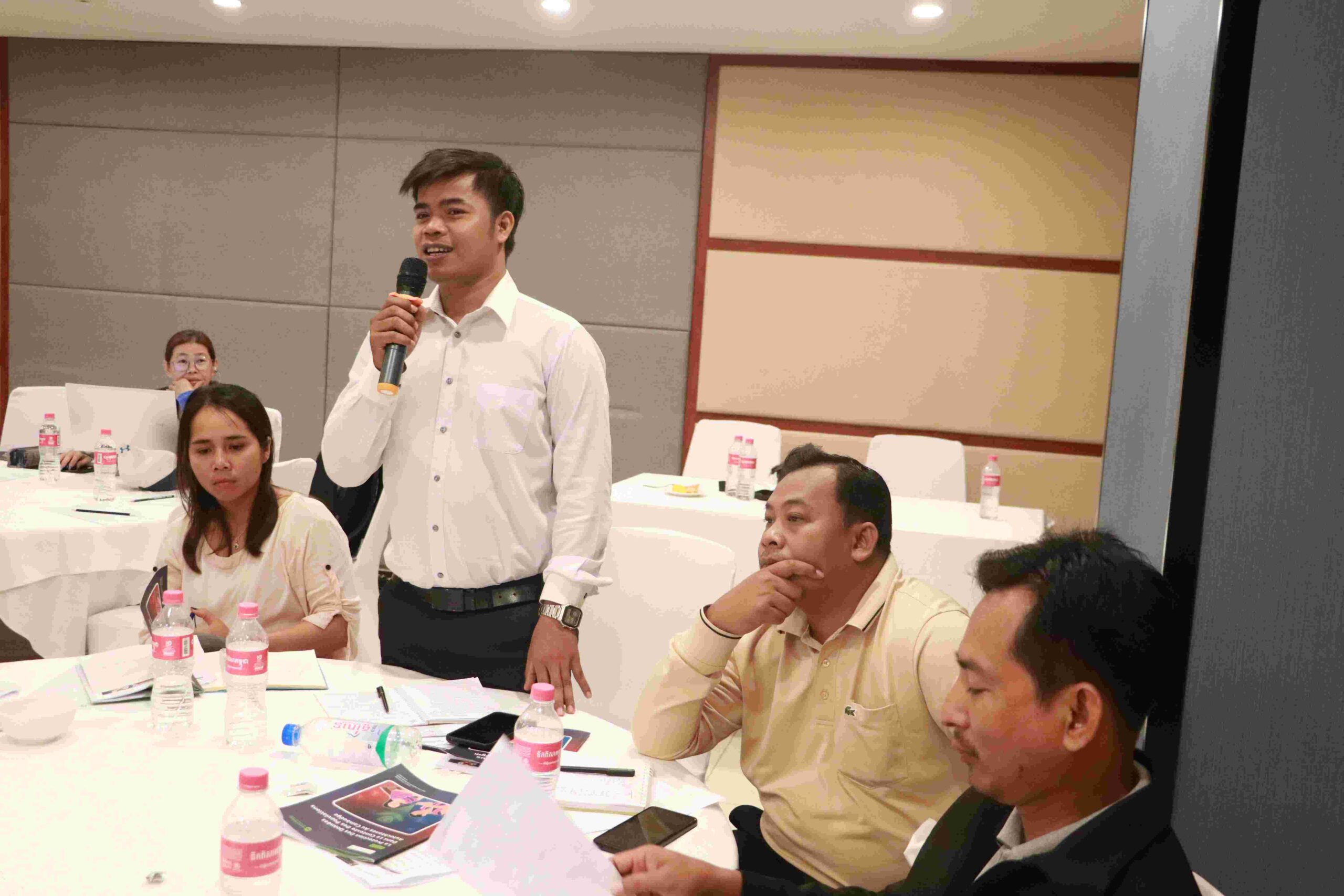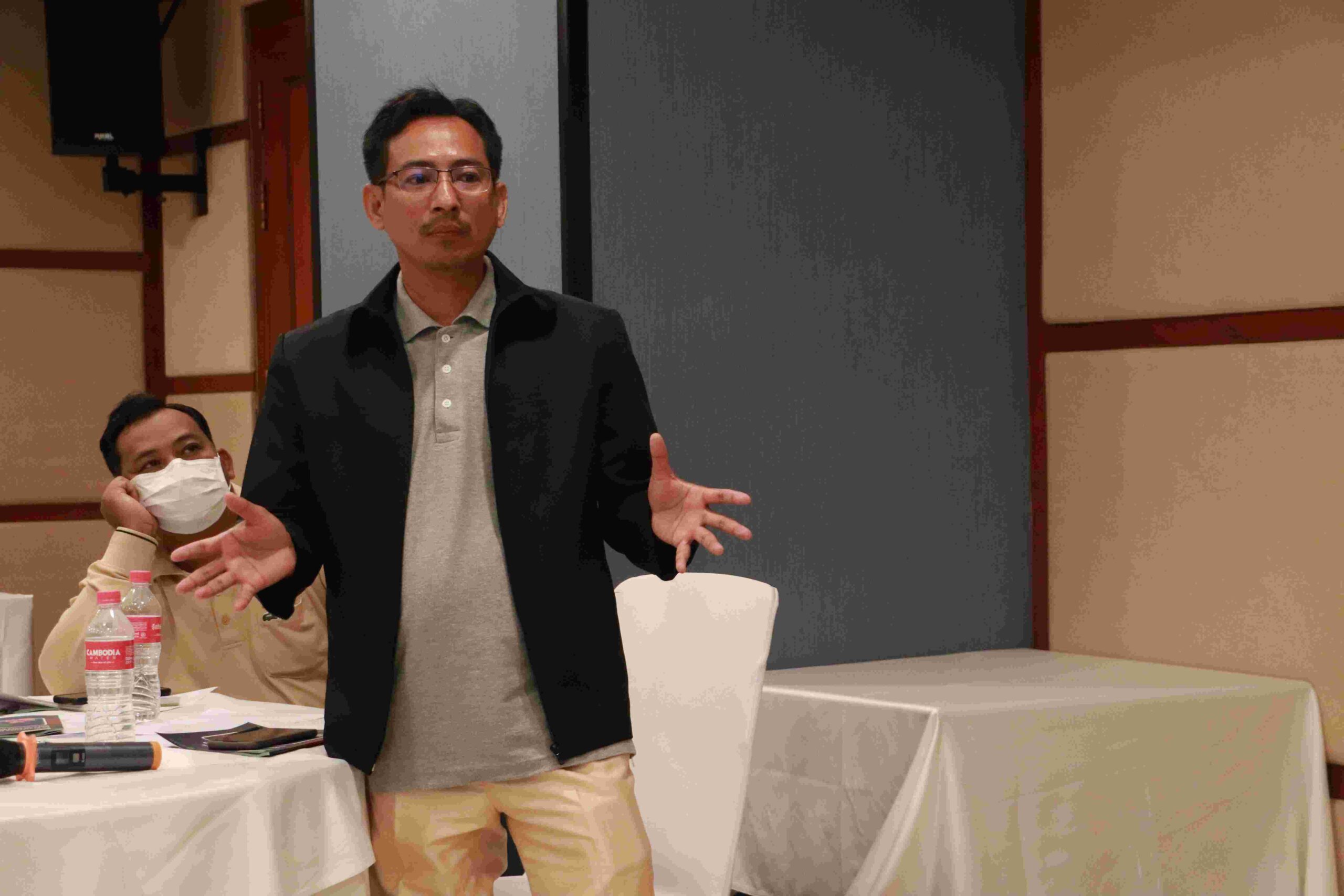Launching on Data Protection in the Context of Indigenous Peoples in Cambodia
On 04 April 2023, Open Development Cambodia (ODC) officially launched the report on Data Protection in the Context of Indigenous Peoples in Cambodia. The event brought together 20 participants (06 females), including representatives from civil society organizations (CSOs) working on indigenous peoples (IPs), data protection networks, journalists, and relevant stakeholders.
ODC has joined research on “Data Protection in the Context of Indigenous Peoples in Cambodia” with Mr. Arthur Champeroux, ODC Legal Research Intern and Ph.D. student specializing in digital law based in Paris and Québec. He researches in informational privacy in video games and blockchain technologies, such as decentralized autonomous organizations, for the Research Chair on Smart Contracts and Blockchain.
The research was conducted during the COVID-19 pandemic with support from ODC. The report highlighted three core parts, including the rising challenges of data matters and the case of IPs, the multiple threats caused by data collection and exposure to IPs, and the relative substance of the recent Cambodian data protection regulation. It is published in three languages: Khmer, English, and French.
The launching event and publication were supported by Heinrich Böll Stiftung (HBS) Cambodia under the project on promoting Environmental Impact Assessments (EIA) for more transparent and responsive environmental governance in Cambodia. This event aims to:
- Officially announce the report on “Data Protection in the Context of IPs in Cambodia”
- Disseminate the current data protection and how significant it is to the IPs
- Initiate research on IPs and data protection in Cambodia.
Mr. THY Try, Executive Director/Editor-in-Chief of ODC, gave a warm welcome by emphasizing the importance of data protection for the IPs. The “Data Protection in the Context of IPs in Cambodia” report will provide valuable insight into the current state of data protection for IPs in Cambodia. He also called upon all participants today to join the discussion to give comments and inputs toward the research. He hopes that fruitful discussions and exchanges will be achieved today on the issue of data protection of the indigenous group.
Ms. KOEM Chhuonvuoch, Natural Resources and Land Editor-Research/Project Coordinator of ODC demonstrated the overview of the report and how the audience can get the report through the ODC Website and the QR Code at the back of the report provided.
Another critical agenda of launching the report was the presentation by Mr. Arthur Champeroux, the author of the report. The presentation mainly focused on the current situation of data protection in Cambodia, especially among IPs. On top of that, he found some interesting frameworks and policies relating to data and privacy protection in Cambodia. The latest one is the draft law on cyber security. He observed some NGO movements working in the realm of IP data protection. However, data regulation and privacy protection for IPs need to be balanced. There has not yet been an administrative data protection or regulation that protects IP data and privacy yet in Cambodia. The draft law on cyber security might shed some light on data and privacy protection.
Arthur responded that most NGOs in Cambodia have tried their best for the IP communities. Still, some of their actions might backfire on IPs based on two aspects: first, the exposure of gender information, age, and location of IPs which can make them vulnerable to other parties who try to seek advantages on them. In addition, the data collection and exposure go against their way of living or staying under surveillance. Second, exposure to the location of the IP communities poses a negative impact on them.
Following that, other participants asked, “Is there any way to avoid exposing the communal land registration details such as gender, location, phone number, etc.?” Arthur responded that it is the law required by the government, so the registration process remains the problem. To declare a land entity, you must go public about it, not only in Cambodia but worldwide. Based on his perspective, what should be changed is the registration process. NGOs will play an important role here by facilitating the registration process. Data trust is a practice where registration details are kept confidential. Though, he admits this practice will not come anytime soon for Cambodia.
The event then turned into a very active Q&A session since the participants shared their views, knowledge, and experience toward working with IP communities. They have come up with a dilemma of going public with the information about their land and communities. Both negative and positive consequences lie between the two options. They have also discussed that using technology, such as the internet and smartphones, exposed the risk and opportunities for the IP communities.
The Launching on Data Protection in the Context of Indigenous Peoples in Cambodia concluded with a closing remark from Ms. KOEM Chhuonvuoch. She thanked Arthur for his commitment to writing the report, and Mr. THY Try for advising and moderating the discussion. She also thanked the participants for taking their valuable time to join the event. In the end, she especially thanked HBS for supporting ODC from the start to publishing the report.


